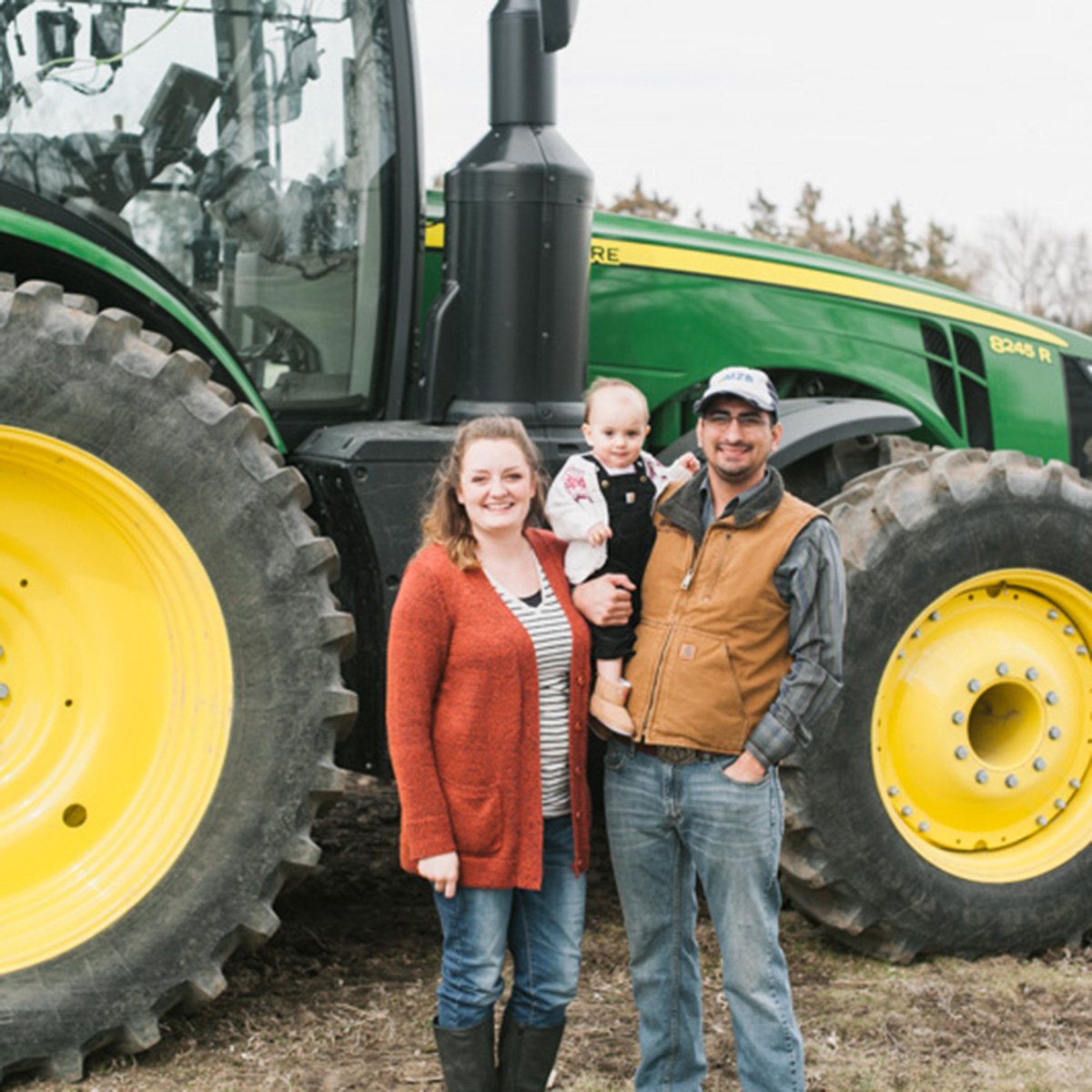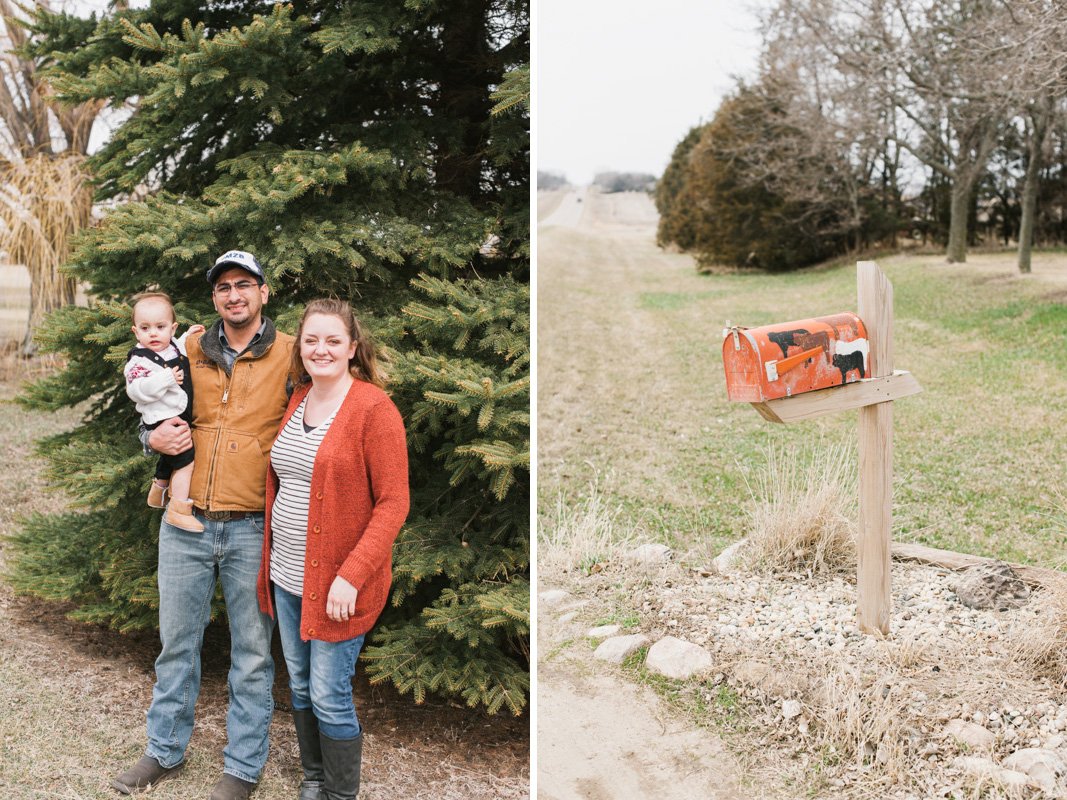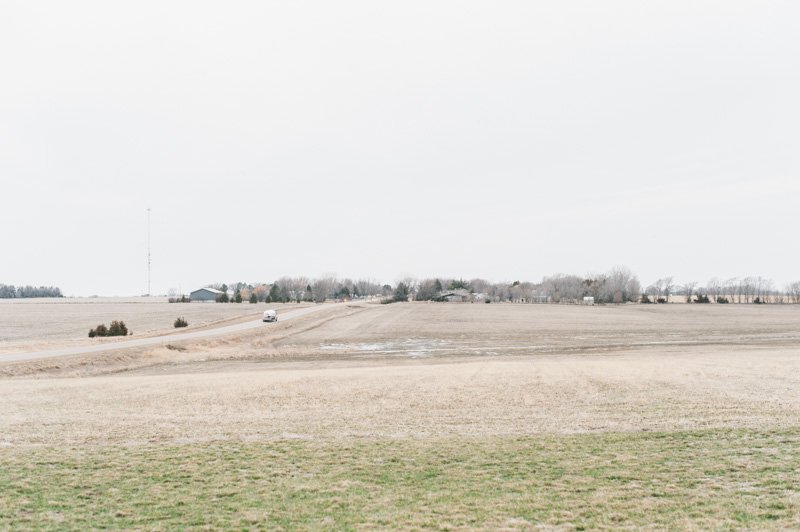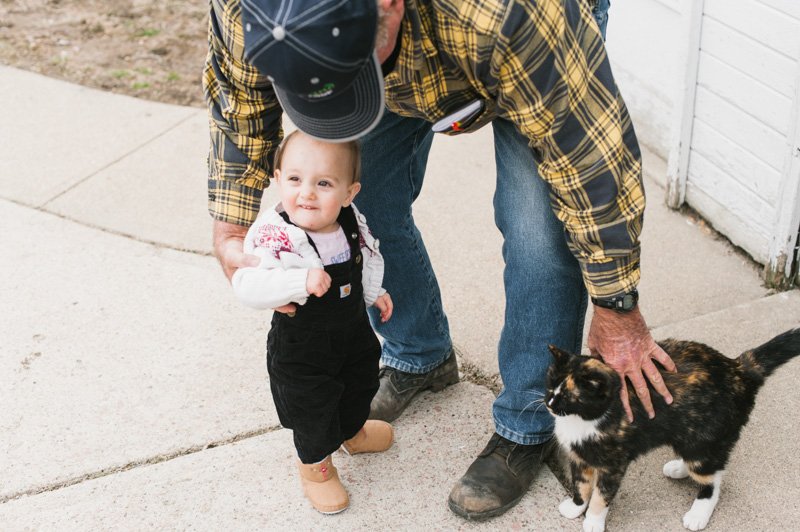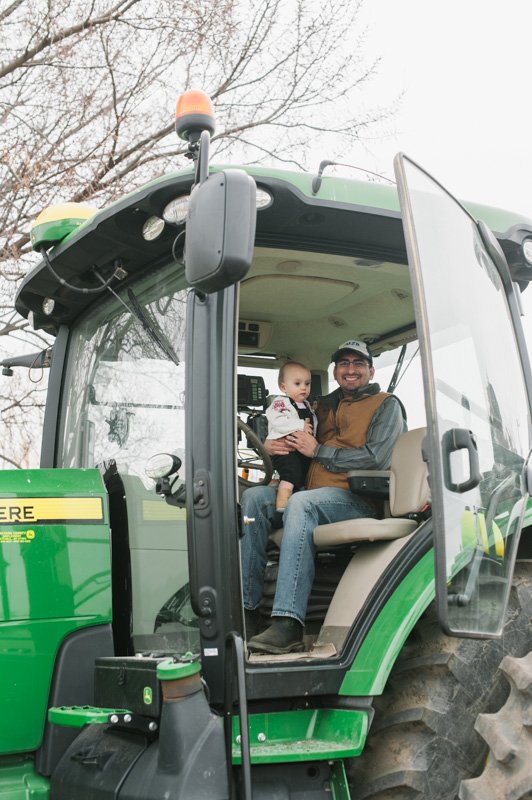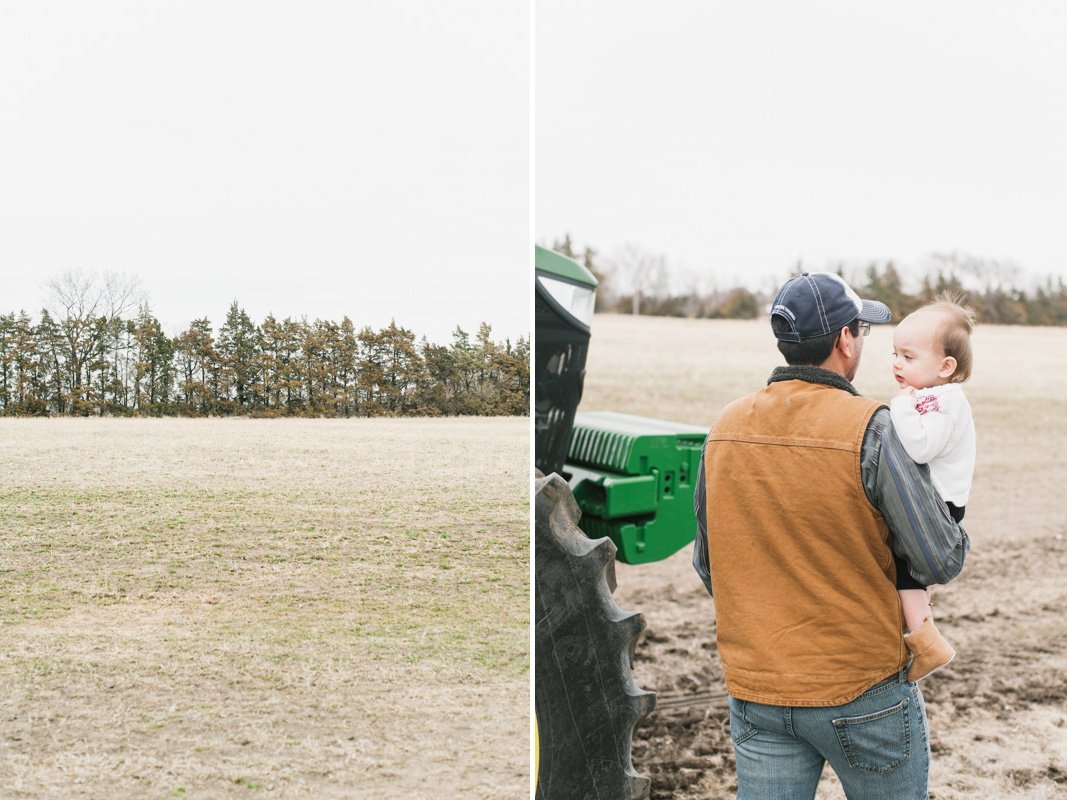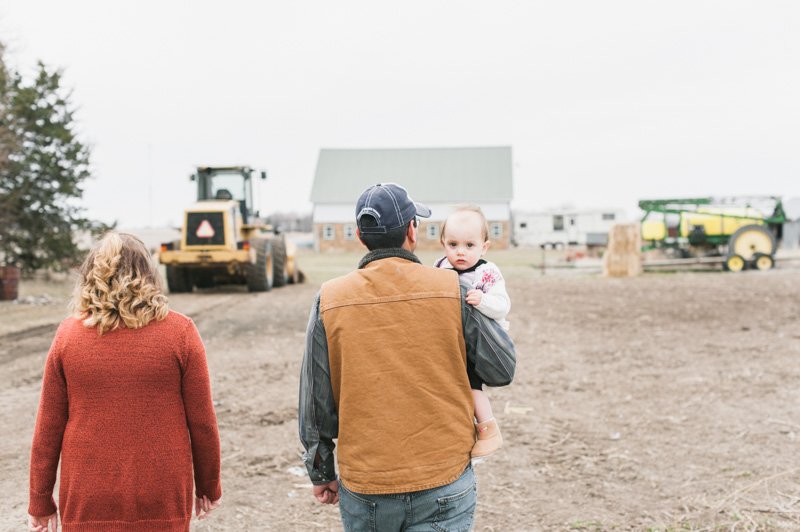Meet a Young Farm Family Using Technology for Crop Protection
Ram Farrell grew up around the world. His dad’s military career took the family everywhere from Hawaii to Panama to North Carolina. When it came time to literally put down roots, the Farrell family knew South Dakota felt like home.
Ram, now a 32-year-old father, is the third generation to farm in South Dakota. He grows soybeans, corn, wheat and cover crops near Parkston with his wife, Ashley, and their one-year-old daughter, Rosalie.
“I’m glad my daughter will have the opportunity to grow up on the farm. So many kids in big cities just don’t know very much about where their food comes from,” said Ram. “I can’t wait to teach her more about ag as she grows up. Maybe we’ll even farm together some day.”
As a young dad, Ram knows how important it is to protect the environment while growing nutritious, safe food to feed families. That’s why he practices precision agriculture. Ram leverages data and technology to determine exactly where to apply fertilizer and pesticides. Resources are applied only where they’re needed to limit waste.
Precision agriculture makes it possible to use a small amount of pesticide – about a coffee cup’s worth diluted in water – to cover an entire acre, which is about the size of a football field. To cover about 70 acres, it takes 18 gallons of pesticides diluted in 1,000 gallons of water.
“Some people think farmers are out here spraying pesticides every day and that’s just not the case,” Ram explained. “Farmers only want to apply as much as they need to grow a healthy crop. It saves money and, more importantly, it helps preserve the land for the next generation.”
In fact, Ram doesn’t apply insecticides to his crop. Insecticides are a type of pesticide that specifically target insects. Instead, he uses GMO seeds equipped with technology to defend against pests. GMO soybeans have reduced pesticide use by 37 percent, according to the American Council on Science and Health.
Ram also practices a form of conservation tillage called “no-till” to keep his soil healthy. After harvest, he leaves corn stalks and wheat stubble in the field. This reduces soil erosion, improves soil quality and conserves water and energy. No-till farming also helps suppress weeds, which means Ram uses less herbicides to grow healthy crops.
“We’re really treating the land the way God intended,” Ram stated. “The soil microbiology and everything happening below the surface, invisible to our eye, helps us grow healthy plants. It’s important for us farmers to understand how everything we do affects our crop and the land.”
Now you know how farmers use pesticides safely and sustainably. Go deeper with this blog post about how farmers apply pesticides.

